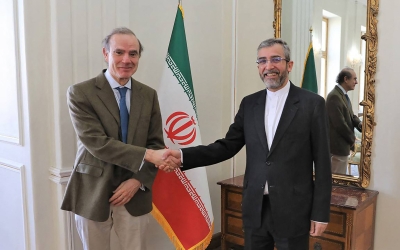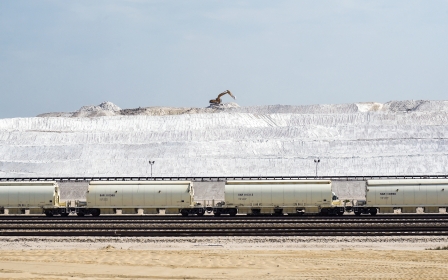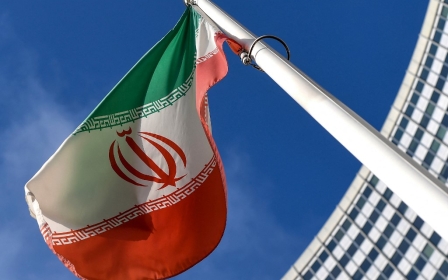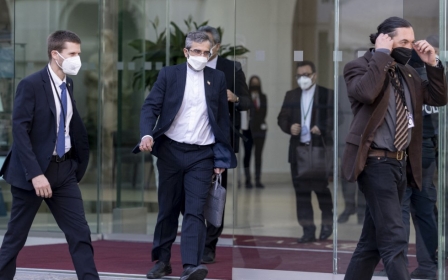Iranian press review: Anxiety over price of flour soars
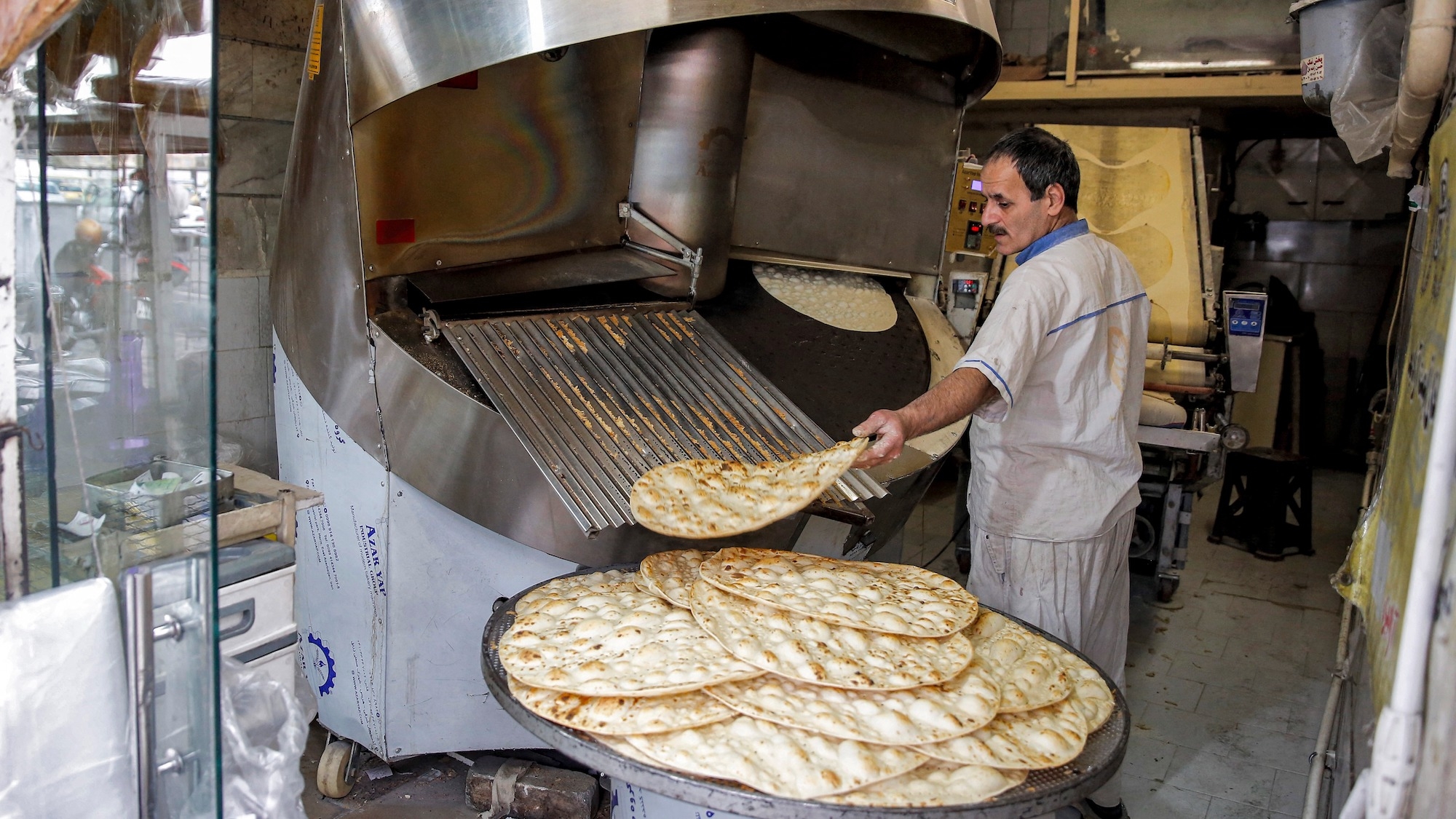
Iranians anxious over soaring flour prices
Ordinary Iranians are anxious about the soaring price of wheat in the country, despite authorities insisting there will be no increase in the official price of traditional bread until at least 21 March 2023, the end of the current Iranian year.
In the past weeks, the price of one kilogram of flour on Iran’s open market has gone from 25,000 Iranian rials (about $0.10) to around 125,000 rials ($0.50). The price of pasta has also gone up.
The potential hike in bread prices was the leading story in most Iranian newspapers on Sunday.
Critics have called for President Ebrahim Raisi to resign because of his failure to keep inflation under control - something he had promised to do when he took office in August 2021.
New MEE newsletter: Jerusalem Dispatch
Sign up to get the latest insights and analysis on Israel-Palestine, alongside Turkey Unpacked and other MEE newsletters
Despite new leadership, Iran’s economic crisis, caused by international sanctions and the global financial system, as well as domestic corruption, has continued on a downward spiral.
Conservative outlets supporting Raisi have blamed the war in Ukraine, former president Hassan Rouhani's policies, and flour trafficking to the neighbouring countries for the increase in flour prices.
The pro-conservative Jam-e Jam daily quoted an economist, Mehdi Hashemzadeh, as saying: "With the government's new strategy, people will [still] buy traditional bread at its previous price, and the flour trafficking would end."
On the other end of the political spectrum, the pro-reformist Shargh daily accused the government of creating confusion with its economic policies and manipulating market prices.
"During the past weeks, all domestic outlets reported chaos in the food market… and now the concerns are about the bread. The officials say the current situation is related to the war between Russia and Ukraine. However, everyone is aware that years of governmental intervention in the market have caused the current food shortage and increased prices," the Shargh daily wrote.
Tehran tackles drug-related homelessness
Tehran's police chief, Brigadier General Hossein Rahimi, has said that about 20,000 homeless people addicted to drugs are currently live on the streets of Iran's capital, with no plan put in place by the government to tackle the issue.
In a visit to Tehran's Shush, Harandi and Molavi neighbourhoods, Rahimi admitted his department had not been able to solve this social problem despite years of trying.
"In 2018, the police started clearing the addicts from these neighbourhoods; however, not only them, but drug dealers and other petty criminals are still present here," the ISNA news agency quoted him as saying.
"Since 2018, the police arrested about 70,000 homeless addicts from these neighbourhoods, while the total number of addicts in Tehran is about 20,000. This shows that collecting the addicts in this way is a vicious circle," he added.
According to Tehran's police chief, about 7,000 drug dealers operate in Tehran, and about 300 houses in the city are hotspots for addicts to gather and consume substances.
Iran has one of the highest numbers of drug addicts in the world, and experts believe the actual number is higher than the official figure of four million.
Thirteen people die from drug abuse in Iran every day, according to a 2021 report.
Ex-central bank chief warns over fiat money
Abdolnaser Hemmati, former chief of Iran's central bank, has warned against the money-printing strategy of President Raisi's economic team, claiming that Raisi's administration has set a new record in pumping fiat money into Iran's economy.
The economist, who was the Raisi's main rival in the 2021 presidential elections, is an outspoken critic of the government's economic policies.
"As I predicted and warned before, unfortunately, the 13th government set a new historical record in printing money," Hemmati said in a recent video, referring to his previous criticisms of Raisi's economic strategies.
"According to the central bank's data, last year the 13th government printed 142,000bn Iranian rials in banknotes, which makes it eligible for the title of ‘super-sultan’ of printing banknotes," he added.
Hemmati's comments came two days before the government’s announcement to distribute monthly cash subsidies to over 72 million Iranians.
Iran faces one of its worst economic crises since the 1979 revolution, with a high inflation rate and a constant devaluation of its currency.
Turkey-Iran committee to tackle water dispute
Iran's foreign minister, Hossein Amir Abdollahian, told legislators that Tehran would establish a joint committee with Ankara to solve the water dispute between the two counties, local media reported.
"During the past eight months, at least twice in person and several times on the phone, I followed up this case with Turkey's foreign minister," Amir Abdollahian was quoted as saying.
"It is not acceptable for the Islamic Republic of Iran that our neighbouring and friend country, Turkey, causes environmental problems in the region by building dams," he added.
Iranian officials have blamed Turkey’s ongoing Southeastern Anatolia Project (GAP) as the primary culprit for causing a wave of sandstorms that have brought on unprecedented air pollution in Iran's 26 provinces and made Tehran one of the world’s most polluted cities.
Amir Abdollahian stressed that the dams built by Turkey on the Tigris river had also reduced the amount of water entering Iran through the Hur al-Azim wetland.
Recently, Iran's environmentalists and water management experts have issued warnings about the GAP, which consists of 22 dams and reservoirs.
*The Iranian press review is a digest of reports that are not independently verified as accurate by Middle East Eye
Middle East Eye delivers independent and unrivalled coverage and analysis of the Middle East, North Africa and beyond. To learn more about republishing this content and the associated fees, please fill out this form. More about MEE can be found here.


